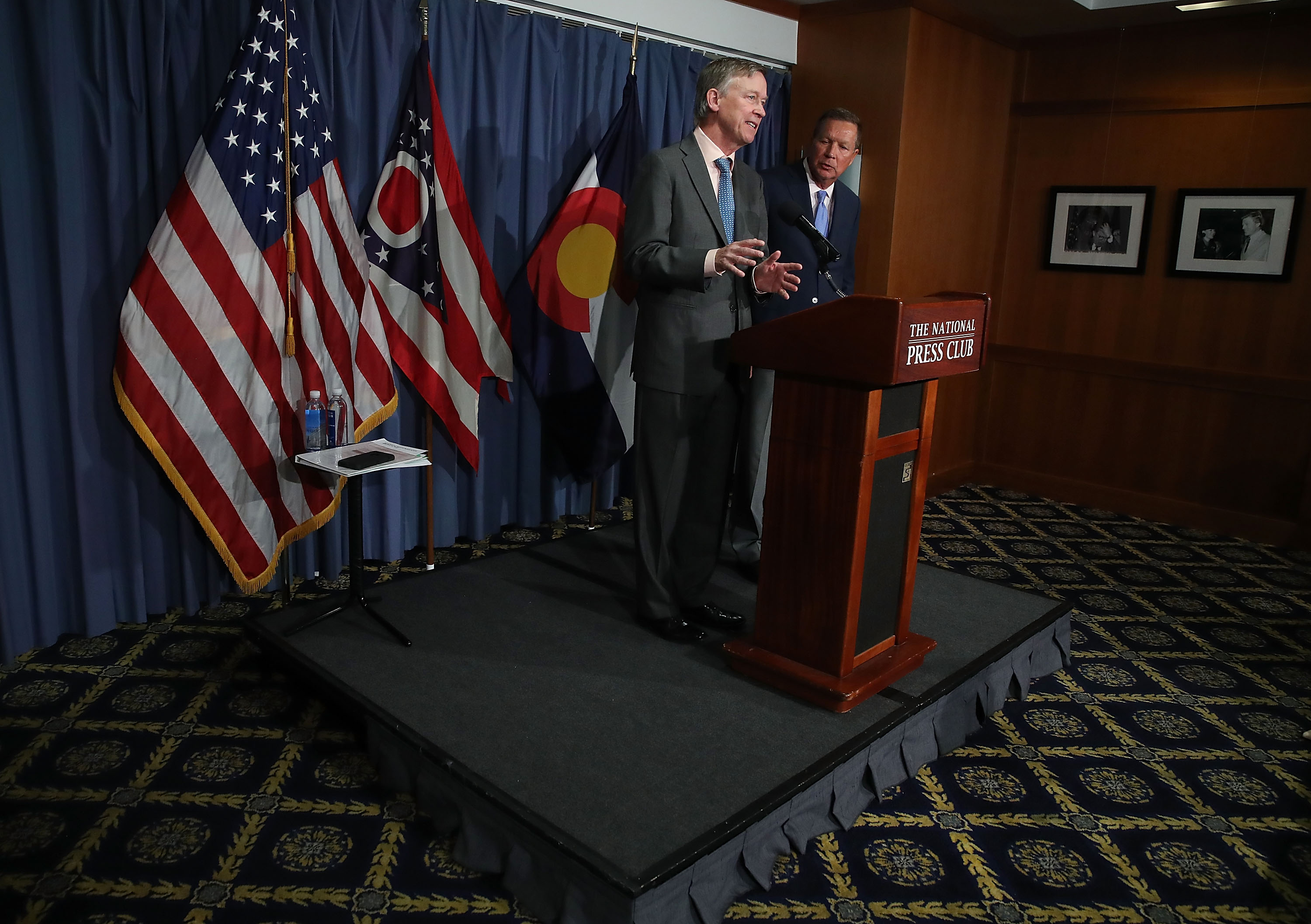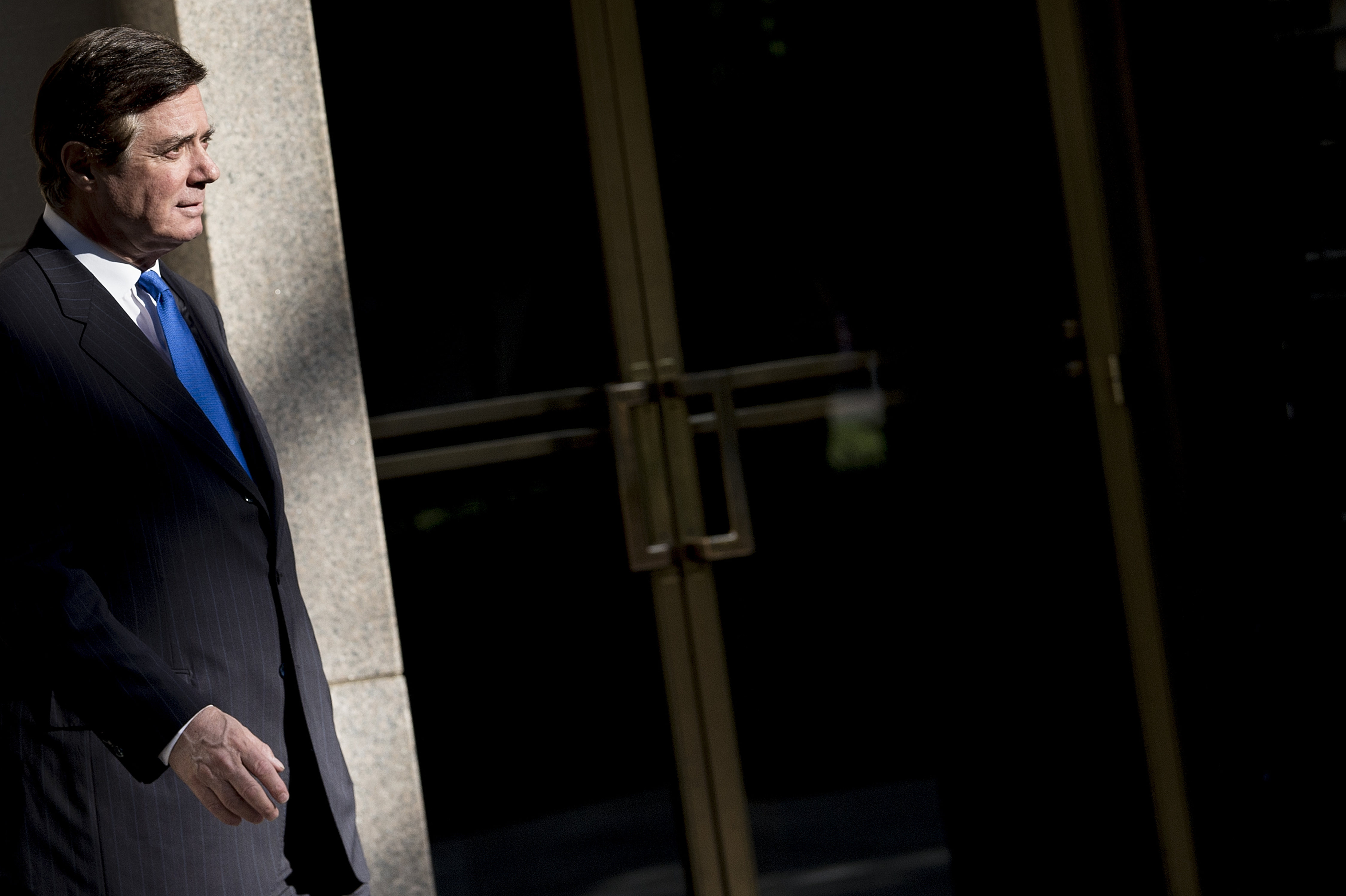A weekly newsletter for Pacific Standard Premium members.

(Photo: Mark Wilson/Getty Images)
Your Five Essential Reads
A rundown of five of our most important and timely stories from the past week.
- Lori Lou Freshwater and her family lived near a military base in North Carolina for years. During that time period they were being steadily poisoned by carcinogenic chemicals being leaked from the base. The government was aware of the problem, but did not address it for decades. Freshwater’s mother and two brothers died as a result of the poisoning. Three decades after growing up in the shadow of Camp Lejeune, she decided to go back and find some answers. Read Freshwater’s story here.
- Across the country, police departments have become more militaristic in approach and in how they are equipped to deal with crime. But as senior staff writer Tom Jacobs notes, research says that increasing the militarization of police does not reduce crime or increase officer safety. Read Jacobs’ story here.
- The Trump administration’s immigration policies have run counter to Obama-era guidelines in a number of ways, one of the most notable being how the laws are applied to non-citizen abuse victims who are fleeing their countries to seek legal protection in the United States. As contributing writer Massoud Hayoun reports, analysts say this puts some of the most vulnerable immigrant populations at the greatest risk. Read Hayoun’s story here.
- “Patsy Cline was a serious boundary-pusher for her time and community.” John Lingan would know that better than most as he spent nearly five years in her hometown in West Virginia while writing his book, Homeplace: A Southern Town, a Country Legend, and the Last Days of a Mountaintop Honky-Tonk, which explores all of the facets of life in two small Appalachian towns. Contributing editor Leah Angstman spoke with Lingan about his work, his time in the mountains, and the country-sized legend of Patsy Cline. Read Angstman’s interview here.
- In 2013, Ohio Governor John Kasich bucked conventional conservative ideology and expanded medicaid coverage for many Ohioans. As a result, as contributing writer Dwyer Gunn notes, he put more than 300,000 people back to work. Read Gunn’s report here.

(Photo: Brendan Smialowski/AFP/Getty Images)
Dispatches: Breaking Down the Implications of the Cohen and Manafort Criminal Cases
News and notes from Pacific Standard staff and contributors.
President Donald Trump’s legal problems reached new heights this week. On Tuesday, Trump’s former campaign chairman Paul Manafort was convicted of bank and tax fraud, becoming another member in a line of former Trump affiliates with a criminal conviction. That same day, in New York, Michael Cohen, the president’s former personal lawyer, admitted to making payments to two women during the 2016 campaign “at the direction of the candidate” while pleading guilty to campaign finance violations. As the New York Times reports, Cohen said Trump directed him to make the payments “for the principal purpose of influencing the election.”
Two Strikes
With Cohen facing up to 10 years in prison, and Manafort turned against him, Trump may finally be forced to confront the investigation he’s repeatedly labeled a “witch hunt.” Associate editor Rebecca Worby spoke with three legal experts who said Cohen’s guilty plea could open the president up to liability; if Cohen’s allegations are true, and Trump knew the payments were campaign-related, “then Trump too violated campaign finance law,” Michael S. Kang, a law professor at Northwestern University, told Worby for PSmag.com. Cohen is not yet a cooperating witness, according to his plea agreement, but NPR reports that a deal with special counsel Robert Mueller is possible—and Cohen may have another story to tell.
Manafort, on the other hand, faces another trial in Washington, D.C., over separate charges, as well as a possible mistrial for the 10 remaining charges in his first conviction, which might have stuck if not for a lone holdout juror, the Hill reports. Unlike Cohen, Manafort is more likely to remain loyal to the president in hopes of a pardon, NPR reports. According to the Hill, some Senate Republicans have already come out against this possibility, and that pardoning Manafort might be considered obstruction of justice. Dissent from within his own party has not stopped Trump from giving pardons in the past, however, and the president refused to rule out the possibility on Fox News this week.
Impeachment?
Cohen’s admission could make the president an unindicted co-conspirator, the same position former President Richard Nixon found himself in during Watergate. Normally, as the Times reported on The Daily, an investigator would want to go after the candidate at the head of such violations. But since that candidate is now a sitting president, the conventional position for the Department of Justice would be not to indict. As contributing writer Jared Keller noted in a piece on PSmag.com this week, the political climate has changed drastically since Nixon, and strong partisanship in the House of Representatives, along with Trump’s vehement attacks on the media, may now neutralize the threat of impeachment. But other experts like University of Chicago legal professor Eric Posner, who spoke with Pacific Standard senior staff writer Tom Jacobs several months ago, disagree with this assessment and note that Mueller does indeed have the power to indict the president. Regardless of these debates, Democrats like Elizabeth Warren have already politicized Republicans’ potential crimes, the Washington Post reports, launching new anti-corruption legislation. Meanwhile, although none of the crimes have been linked to Russia, NPR reports, these convictions may signal further discoveries from Mueller’s investigation.
—Emily Moon, Editorial Fellow

(Photo: Icarus Films)
PS Picks
PS Picks is a selection of the best things that the magazine’s staff and contributors are reading, watching, or otherwise paying attention to in the worlds of art, politics, and culture.
Documenting the Artifice of North Korea: When Russian director Vitaly Mansky set out to make a documentary about life in North Korea, he was—after two years of negotiation—allowed to do so under certain conditions: The North Korean Ministry of Culture would script the film and choose who would appear in it. And, while shooting, Mansky had to hand over all footage to the North Korean authorities.
Released in 2016, Under the Sun centers on the family of eight-year-old Zin-Mi, who is joining the Korean Children’s Union—a political organization under the umbrella of the Workers’ Party of Korea. In a surreal dinner scene, the North Korean handlers (whom the government provided to shadow the production) coach the family on how they should talk about kimchi. We see several takes in which Zin-Mi describes how kimchi “prevents cancer and aging,” eliciting the same hearty laugh from her parents each time.
After that, the film’s artifice shows more and more: We find out, for example, that North Korean authorities changed Zin-Mi’s parents’ professions (“According to Zin-Mi, her mother works at a cafeteria, but during the shoot she’ll be working at an Exemplary Soy Milk factory”). How is all this possible under the government’s meticulous guidelines? Mansky and his small crew did something risky: They kept copies of all the footage—and the cameras kept rolling between takes.
What’s most fascinating about watching this documentary-turned-exposé is not the puppetry orchestrated by the North Korean government or the beautiful shots of a place you’ll likely never visit. It’s seeing all that refracted through the eyes of a child who is being groomed to be a model North Korean citizen. In one memorable sequence, Zin-Mi tries to learn a traditional dance, but even the basic steps elude her. Her strain and her tears could be those of any frustrated child, but in the context of the broader lines of discipline that circumscribe her life, they seem to hold much more.
—Rebecca Worby, Associate Editor
PS in the News
A look at where our stories and staff surface in the national conversation.
- Jackie Botts’ story about how insurance providers have stopped granting coverage to California homeowners whose property is near wildfire-prone areas was included in the California Sun email.
- Poynter included Max Genecov’s story about Desert Oracle founder Ken Layne’s life and times in the desert in the quick hits section of its Morning Mediawire round-up.
- Senior staff writer Tom Jacobs’ look at how the militarization of the police does not, in fact, reduce crime rates was included in the Washington Post Happy Hour Round-Up.
- The Association for Psychological Science wrote summaries of contributing writer Sophie Yeo’s story about the psychological technique of pre-conformity being used to change harmful behaviors and senior staff writer Tom Jacobs’ piece about how viral moral outrage can backfire.
The Conversation
What Happened at Camp Lejeune (PSmag.com, August 21st)
- My brother and I lived at MOQ 2521 at Paradise Point from 1958 to 1961. Great place for kids. My best friend was the son of the base engineer. I developed severe asthma during this time period. The mass of records grew to well over a foot thick and prevented me from entering the military later. We get a nice letter regularly asking us if we have cancer yet. —Hal Barker
- My husband lived on Camp LeJeune for four years, and continued to drink the water for years after he moved in with me until the public was finally notified of the contamination. My brother-in-law died of liver cancer in 2011; he lived there as a Marine for three years; my nephew was born at the Naval hospital (he died of cancer a few years ago). I feel bad for all the families who lost loved ones from the effects of the contaminated water, and for all the people still living with the effects of it. —Dale Gurganus McCullogh
The Endling: Watching a Species Vanish in Real Time (June/July 2018)
- What is it like to watch the extinction of a species in real time? This story brought tears to my eyes, but I’m so glad I put it on my summer reading list. Thank you Ben Goldfarb for doing the story of the #vaquita justice. —Katya Zimmer
A Journey Through Contested Lands (August 2018)
- This is the coolest photojournalism project I’ve seen in quite a while. —Andrew Friedman
If you have any thoughts about this newsletter or our work—what you like/didn’t like/want to see more of—you can reach us at premium@psmag.com. If you’re not already, become a premium member by following the button below. As we continue to build out the benefits of a premium membership to Pacific Standard, we want to hear what would be most valuable to you.





